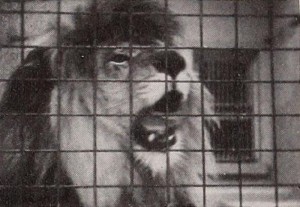
"A Day at the Zoo is a lively and pleasing film of a family's visit to the New York Zoological Gardens. The youngsters of the family discover the Children's Zoo and make the acquaintance of farmyard animals. They feed the chickens and pet the lambs while Father and Mother look on. The larger and stranger beasts in the main part of the Zoological Gardens are next pictured; the children feed them, too, but at a safer distance. In this film, Walter Bergmann has produced the best type of informal zoo picture — a story with human interest, enlivened with a sense of humor." Movie Makers, Dec. 1943, 477.
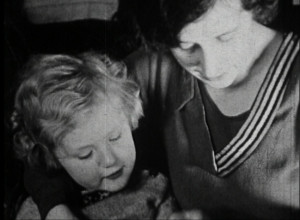
A short film about the young Martin children.
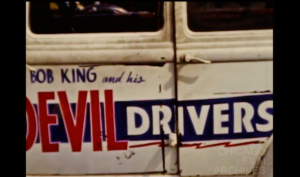
"It stars a young boy, named Bill, who writes to his friend Jim, reflecting on their times together the previous summer. Title cards of the boy’s handwritten letter are interspersed with images of their summer highlights, including scenes of fishing, automobile stunts of “Bob King and his Devil Drivers,” and a motorcycle hill climb competition." Chicago Film Archives
"Twin boys wreak havoc on a park when their dad falls asleep on their picnic." Sacramento Public Library.
"The special award, also of $500, went to Kennin Hamilton, of 28 Maitland Street, Toronto, Ontario, Canada, for his visualization of Hood's 'The Dream of Eugene Aram' in 16 millimeters. Mr. Hamilton played the principal role of Eugene Aram, disclosing a graceful pantomimic skill. The photography was handled by K. A. Mackenzie. A Cine Kodak, using Kodak Safety Film, was used. Mr. Hamilton had no special lenses or equipment and yet he achieved some singularly beautiful shots. Nature supplied his lighting, even for his interiors. A stepplader served as a tripod." Photoplay, Jun. 1928, 136.
"Children get dressed after swimming with help from their mother; later they are seen larking around in the garden, tying their father up with a rope." (NWFA Online Database)
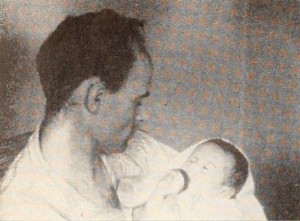
"Here, in Duck Soup, is the true life blood of amateur movie making — the family film. Since the hobby's very beginning in 1923, and consistently through the years since that time, more persons have bought more amateur movie cameras to take family films than for all other reasons put together. And yet look at the results! Or better still, don't look at them — for they are on the average an incoherent hodgepodge of over and underexposure, unsteady camera handling and wild panning on disconnected mementos of familiar milestones. Duck Soup, for those filmers who are lucky enough to see it, should change all that. For here is a well planned and crisply executed family film which has a beginning, a middle and an end. It has also precise camera work, fluid sequencing, and lighting on the children which will delight the heart of all home filmers. Do not, however, let these disciplined excellencies mislead you. For, above all else, Duck Soup is no stodgy exercise in family record keeping. These people had fun! Look . . . Duck Soup is a rollicking, rambunctious saga of what happens in a household when Pop, charging recklessly that the trials of homekeeping are "duck soup," is deserted for a few days by his deserving wife. What happens, as Pop gets the works from a quintet of utterly engaging youngsters, shouldn't happen (as they say) to a dog. There is stolid, well-meaning Tim, who, returning from the corner store, mangles a loaf of bread beyond all human use; there is demure and lovely Ellen, who plays the bride with Mom's best lace tablecloth; there are Greg and Kevin, impish and angelic twins, who roughhouse their way through the afternoon nap, bathing, haircuts and countless other high-spirited adventures. And there is, finally, Gary, the baby, who bawls like a foghorn and is Pop's particular problem-of-the-day. Duck Soup, in recounting these hilarious misadventures, is not a "great" film in the majestic sense of the word. (Majesty would be impossible in the face of that Lawler brood!) But it is family filming of the finest sort. It is warm, winning and alive with good spirits. Duck Soup is the best of the Ten Best for 1952 — and it richly deserves the Maxim Memorial Award which it has won." Movie Makers, 1952, 323-324.
"Drama produced by the Stockport Amateur Cine Players Club. Millionaire jewel collector James Welholme buys the famous Emperor's Sapphire at auction. On hearing of this, a rival collector resolves to steal it from him, and sends one of his employees off to do it. The robbery is initially successful, but complications occur and Welholme's daughter is kidnapped by the thieves. The plot is foiled by a family friend, who has been following them. He gets the diamond back and the girl" (NWFA online).
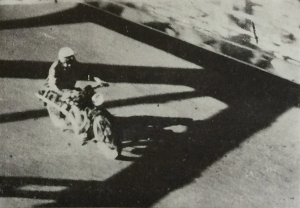
"a soggetto breve"/ short fiction
"EVA E LA MACCHINA
Eva e la Macchina soggetto e regla di Leone Viola, fotografia e montaggio di Fernando De Marzi, interpreti Parisina Poggi, Carlomaria Dermal, Guido Cerato, svolge come tema il contrasto e nello stesso tempo il rapporto tra il maschio in possesso della femmina e il motociclista nel possesso della sua macchina. L'ambiente e per una parte primitivo e naturale, per l'altra invece si svolge presso un ponte di ferro e un passaggio a livello. I due motivi corrono parallelamente sino alla fine, allorché il Viola persegue il motivo della macchina sola, sino al finale gocciolare dell'olio, il cui parallelo rimane soltanto presunto. Eva e la Macchina si avvale di un ottimo ritmo di montaggio, dove al crescendo assai bene ottenuto della parte centrale succede il finale altrettanto realizzato nella sua calma compostezza."
"EVA AND THE CAR
Eva e la macchina (Eva and the Machine), screenplay and direction by Leone Viola, photography and editing by Fernando De Marzi, starring Parisina Poggi, Carlomaria Dermal, Guido Cerato, develops as its theme the contrast and simultaneous relationship between the male in possession of the female and the motorcyclist in possession of his machine. The environment is on the one hand primitive and natural, and on the other, the film takes place near an iron bridge and a level crossing. The two motifs run parallel until the end, when Viola pursues the motif of the machine alone, until the final drip of oil, whose parallel remains only presumed. Eva and the Machine avails itself of an excellent rhythm of montage, where the very successful crescendo of the central part is followed by the finale equally successful in its calm composure."
— Il ventuno 24 (Review of the G.U.F. of Venice) January 1935, p. 15
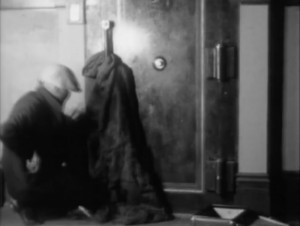
"Mystery romance in which the police chief's daughter is courted by a crook." Library and Archives Canada.
Total Pages: 12